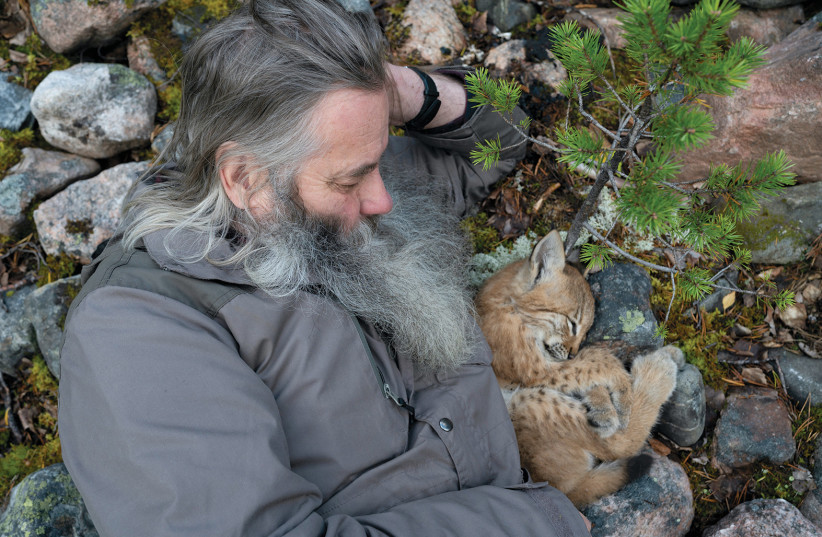Those who religiously follow the news and mainstream media in general may have arrived at the conclusion that all the eyes of the world are constantly trained on this speck in the Middle East. In fact, it is highly likely that your average John Smith in say, St. Louis, Missouri, or some Anne-Marie Dubois in Nantes, France, have plenty of other chores, adventures, and life challenges to keep them busy.
One of the problems with adopting the Israel-centric notion piecemeal is that one can tend to become insular. That may be purely a matter of a defense mechanism kicking in or something bordering on xenophobia bred of the outside world’s actual or perceived antagonism toward us.
One way to break out of that shell is to simply take a look at life beyond our borders, far beyond our borders. That can be facilitated by popping along to the Jerusalem Cinematheque next week, which hosts the 12th edition of the annual Anthropological Film Festival from February 13-15.
Breaking out
The event, which takes place under the aegis of the Cinematheque and the Department of Sociology and Anthropology of the Hebrew University, offers a fascinating multifaceted look at cultures across the globe, and some existential issues that we would all do well to take on board. If the COVID-19 era has taught us nothing else, we should at least now understand that no country or person is an island unto themselves.
As usual, the lineup of the festival marries filmic content with lectures or live performances. The program was curated by festival founder and perennial artistic director Prof. Tamar El-Or, who says she and a couple of colleagues watched 140 documentaries before whittling the stack down to the roster of 15 movies that made it into the festival program.

The three-day lineup takes in the regular Classic Corner, which proffers cinematic works that have proven milestones along the timeline of anthropological cinema. This year features a triad of short documentaries made by 85-year-old Armenian filmmaker Artavazd Pelechian, who has been described as a “film poet.” One of the three, Seasons of the Year, shot in black and white in 1975, demonstrates Pelechian’s deft camera work and montage as he lovingly and faithfully captures the traditional way of life of rural folk back in the day. It makes for riveting viewing.
Other highlights on the agenda include the curtain-raiser Into the Shaolin by Chinese director Hongyun Sun, which follows the lives of the students and monks of the Shaolin Monastery on a mountaintop in northern China. The storyline follows an undulating thread through spectacular kung fu sequences, captivating characters, and meditative moments. The screening will be preceded by a live demonstration of karate by members of the Shotokan Jerusalem club.
Note to cinema lovers
El-Or admits to an enlightening “ulterior motive” to the cinematic venture. “One of our aims for the festival was to expose cinema lovers to this genre, anthropological cinema. People are always asking me about it, and if there is a difference between documentaries and anthropological films. There is no clear answer to that.”
The idea was, at least, to offer us an alternative perspective on the discipline. “We want to show the public, and our students at the university, that there is a different way to approach anthropology. You don’t have to address the material through textual material. There is also the visual, the art form.”
The festival has proven a popular event since its inception. El-Or says she is not surprised. “Israelis like documentaries and nature, and they like to travel. They like to visit places that no one else has been to before.” Sounds like a veritable winning combo.
The latter is achieved, in viewing terms, with the inclusion of The Invention of the Other, by Brazilian director Bruno Jorge. The film documents an adventurous and perilous venture by the Brazilian government in 2019 to track down a group of isolated indigenous people deep in the Amazon rainforest. “It is fascinating to see these people encountering white people for the first time in their lives,” El-Or notes. “It is moving, and it really shakes you up.”
Other gems to look out for include Lynx Man, directed by Johan Suina, which tells the tale of a loner in west Finland who goes the extra yard, or two, in order to find a family of lynxes.
And, it seems, you don’t necessarily have to fly off to any remote destination in order to get some anthropological insight. The second Finnish contribution to the festival, The Gamer, by Petri Luukkainen and Jesse Jokinen, details the downtime antics of a gifted high school student gamer. The film follows the youngster as he struggles to cope with the pressures of being a professional esports player and the challenges of a competitive world.■
